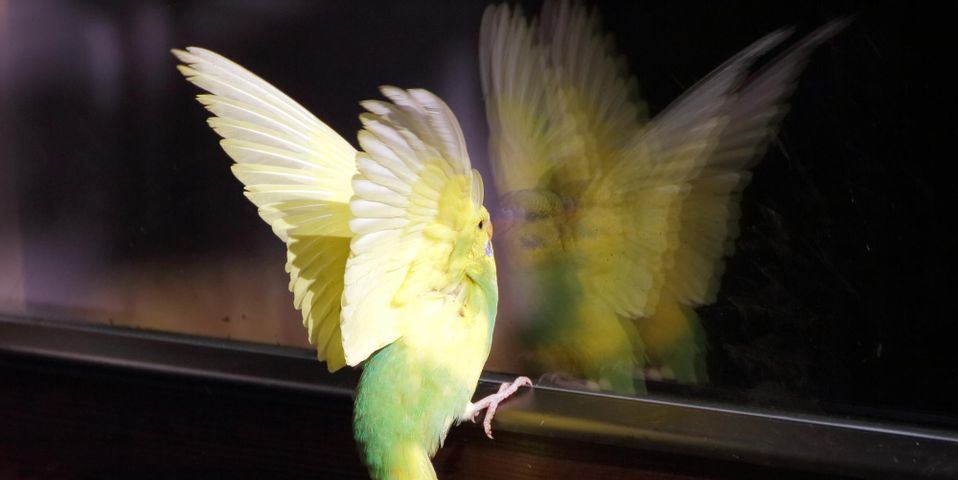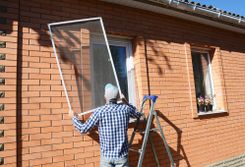
If you often hear the thud of birds flying into your windows, it might be time to take some steps toward wildlife control. These impacts are hard on your windows, and they also can cause serious injuries to the birds. Learn more about this phenomenon below to help you reduce unnecessary accidents.
What Causes Collisions?
During daylight hours, windows reflect plant growth and other vegetation, so birds looking for food or migrating may fly toward the glass to reach these false habitats. They may also view their reflections as territorial intruders and attempt to fight these birds, though this behavior is more typical during the springtime nesting cycle. While wildlife control experts aren't sure how birds navigate at night, it has been established that bright, artificial lights confuse them and can cause them to fly into lit buildings.
How Can You Prevent Them?
 Place solid objects, such as window screens or blinds, on or near the window to break up the reflections. Lines of tape or window decals also work if they're placed no more than two to three inches apart. However, these solutions should be on the exterior of the glass, as they won't be visible in all lights otherwise. If they can't be placed on the exterior, put them where they'll be most visible during dawn, as this is when most bird collisions take place. To avoid nighttime collisions, keep bright lights away from windows and conceal light sources behind curtains or shades.
Place solid objects, such as window screens or blinds, on or near the window to break up the reflections. Lines of tape or window decals also work if they're placed no more than two to three inches apart. However, these solutions should be on the exterior of the glass, as they won't be visible in all lights otherwise. If they can't be placed on the exterior, put them where they'll be most visible during dawn, as this is when most bird collisions take place. To avoid nighttime collisions, keep bright lights away from windows and conceal light sources behind curtains or shades.
What Should You Do for an Injured Bird?
Keep pets and children away from injured birds, as they may carry diseases and shouldn't be handled directly. If the bird is in an exposed area, place a box or screen over it for protection. Should it become alert and act ready to fly, remove the obstacle. Finally, don't force any food or water on it, and call a local wildlife control service if it doesn't recover enough to seek these out on its own.
If you have nuisance birds flying into your windows, contact Urban Wildlife Control in Roswell, GA. Their licensed and insured team will safely remove and transport animals to a healthy environment. They’ve been offering effective wildlife control services in the Atlanta area since 2003 and are well-versed in a wide range of animal problems. Call (678) 493-7194 for immediate assistance, or visit their website to learn more about their services.
About the Business
Have a question? Ask the experts!
Send your question

